Comments and Issues
State Of The Nation: Dangers Of False Expectations As Nigeria Groan Under Debt Burden
Published
5 years agoon
By
Olu Emmanuel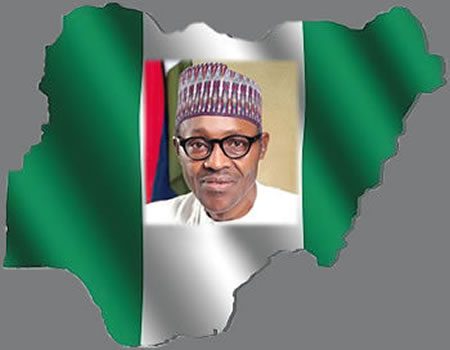
By Ifeanyi Izeze
“The first responsibility of a leader is to define reality. The last is to say thank you. In between, the leader is a servant”- Max de Pree.
But under the current dispensation in the country, the first responsibility of our President is to blame every other person that was in government before him for failures of his government to register a single significant impact on the socio-economic lives of the ordinary Nigerians since 2015. The last, as he displays daily, is to remain deaf and dumb. In between, he is there as lord over all.
Just few days ago the United Nations reawakened Nigerians to the brutal reality of how poorly the Gen. Mohamadu Buhari administration has managed the nation’s economy with a damning verdict that 98 million Nigerians live in multi-dimensional poverty.
Like it’s typical of the head of State and his handlers, they didn’t make any comment about the scary statistics coming from the United Nations Development Programme (UNDP). Perhaps, one reason they didn’t mind to comment on the report is because it is factual – Nigerians in the past four years indeed live in multi-dimensional poverty.
False pretences of knowledge about complicated economic indices have become all too common defining characteristics of this government. Who are the ordinary Nigerians going to believe, government or the evidence of their own eyes? If what the government says has little or no relation to what people feel or can see all around them, why won’t they believe the UNDP report?
Under Buhari, Nigeria has grown its debt portfolio by N9.61tn; statistics available from the Debt Management Office (DMO) have shown. In essence, the nation’s debt is about where it was in 2005-06, just before Nigeria benefited from massive debt relief as part of a program coordinated by the Paris Club, IMF, World Bank and the African Development Bank under the Obasanjo administration. To have squandered the debt reduction in just four years and have no tangible economic progress to show for it is beyond disappointing to say the least.
Only recently, the United Nations declared that 43 percent of our nation’s Foreign Direct Investment (FDI) has taken flight to other countries. Unemployment has gone out of proportion and there is no hope in sight.
But typical of a team that lacks capacity for anticipatory actions, the Federal Government has been running from pillar to post in a vain bid to stabilize the economy. Unfortunately, all conceived palliatives applied to save the nation’s declining economic indicators have merely scratched the surface of the problems leaving the mass of Nigerians desperate, confused and hungrier.
Without doubt, Nigerians would unanimously agree that the Federal Government’s casual response to the nation’s rising economic challenges depicts gross insincerity and/or incompetence on the part of those that administer the economy.
With external debt standing at more than $10 billion and our internal debts at more than $15.4 billion, it should bother every concerned Nigerian that Buhari is driving the country into economic wilderness. This should be a cause for concern for all well meaning Nigerians, more so when the Federal Government responses to these rising economic challenges have, at best, been casual and at worst deceptive.
As said by Ike Brannon, a Senior Fellow at the Jack Kemp Foundation and President of Capital Policy Analytics, a consulting firm in Washington DC, “Nigeria’s biggest economic problem, though – and the issue that requires real political acceptance from Buhari’s new government – is the country’s growing public debt. Since assuming office in 2015 President Buhari’s governments have added considerably to the nation’s debt, which now exceeds $85 billion.
“Compounding Nigeria’s debt problem is the nation’s significant contingent liabilities. Recent arbitration awards have exposed the government to billions of dollars of liability – most prominently a case involving a private contractor, Process & Industrial Developments (P&ID), whose gas processing project collapsed after the Nigerian government failed to carry out its contractual commitments. The P&ID tribunal award alone represents over $9 billion, and it owes another company another $2.3 billion over a failed hydro-power project.
“There is some evidence that Nigeria’s high debt servicing costs, along with concerns over the rule of law, is causing investors to become concerned with investments in Nigerian debt.
“It is a mystery why these contingent liabilities and the concomitant decline in investor confidence and divestment in the country’s most critical sector are not taken more seriously in Abuja.”
Can you imagine that the federal government is proposing to spend N2.14 trillion for debt servicing with 80percent of this amount set aside for servicing its domestic debt component?
Emblematic of this casual, non profound approach to the management of the national economy is the Central Bank’s now traditional monthly or bi-monthly dole of hundreds of millions of dollars to cronies of the powers that be under the pretence of stabilising the disabled economy. This has only created a bunch of sit-home overnight mega billionaires whose only job is to sweep every dollar coming in and divert same to the parallel market.
The amount of money being borrowed and supposedly pumped into the economy is being aggressively removed by agents of the CBN and people on the corridors of power in Abuja. So we are just wasting money making very few government-people superrich without addressing any of the obvious problems nakedly staring at the nation.
Now, the 2019 budget was anchored around revenue projections of N6.97 trillion for the 2019 fiscal year. From the oil sector, the federal government is expecting revenue of about N3.73 trillion which is about 50 percent, while N710 billion will come from the proceeds of government equity in Joint Ventures.
This figure was derived from two presumptions: oil price benchmark of US$60 per barrel; and daily oil production target of 2.3 million barrels per day minus condensates. In all, both presumptions are at best clearly over-ambitious and near unachievable.
Since the beginning of this year, oil price has oscillated between $61 to $66 per barrel, showing that the benchmark price of $60 was on the edge leaving almost nothing to add to the Excess Crude Account, now almost completely ravished by the gang in government.
Serious issues with the daily production quota cap of 2.3 million barrels per day used by the federal government in the fiscal plan have also been raised by oil experts who believe the assumption was outrightly over-optimistic and it remains to be seen what actually gave the government such morale.
As we were told by the government officials, Nigeria currently produces about 1.8million barrels per day, which according to some experts in the oil sector, is believed to be a more realistic production estimate. So in all, the oil revenue projections are at best overly optimistic which means, to be able to fund the budget, we must again borrow either from outside or from within.
Despite all these, in its propaganda style administration, the government claimed it had been spending more on infrastructure than other administrations in the past. They said they invested in infrastructure. The question is: which infrastructure? The power supply situation has remained disgraceful, the roads are near-impassable, the education sector at all levels is yearning for serious attention in funding. How many can one count! Is there any sector of our economy that is doing well?
You borrowed all these money and there are no meaningful investments for them; we are still importing fuel, importing food, no jobs and no electricity, the roads are still terrible. So where is all the monies being borrowed going to? Where do you look in this government that you don’t see gloom and distress?
Without an honest and frank government acceptance of the situation, Nigeria’s chances of escaping its self-inflicted debt trap are vanishingly small. It is clear there is no hope for this country under the current administration’s management of our resources as all they have shown us they know seems to borrow, borrow and borrow! How long can we survive this as a country? God bless Nigeria!
(IFEANYI IZEZE: iizeze”yahoo.com; 2234-8033043009)
You may like
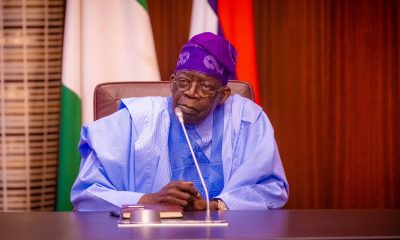

Naira devaluation pushes Nigeria’s debt service cost to N7.8trn
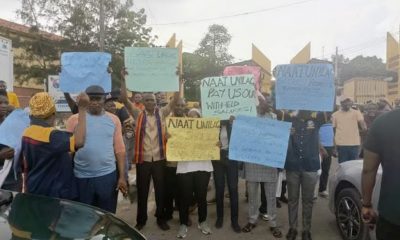

SSANU, NASU members block UNILAG gate over withheld salaries
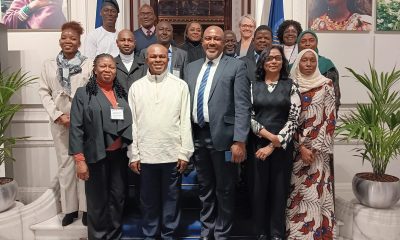

Nigeria to manage public debt using state-of-the-art Commonwealth software
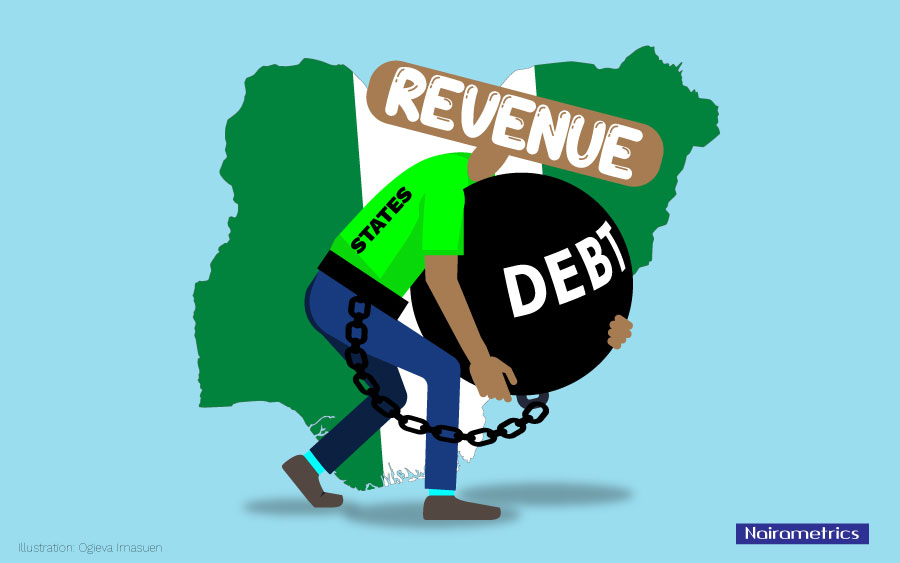

Nigeria spends $3.07bn to service external debts in 10 months
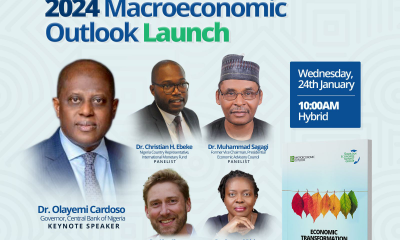

Nigerian Economic Summit Group calls for registration for NESG 2024 Macroeconomic Outlook Launch
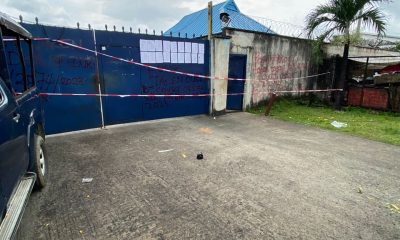

UBA takes over Stallion’s Lagos, Port Harcourt, Kano assets over N156bn debt
Trending

 Comments and Issues2 days ago
Comments and Issues2 days agoAs Ariwoola takes the judiciary to the top of the grease pole

 Business6 days ago
Business6 days agoNMDPRA Chief faces backlash over comment on Dangote Refinery

 Business1 week ago
Business1 week agoGlobal cyber outage disrupts flights, Banks, telecoms, Media

 Business1 week ago
Business1 week agoKPMG criticizes FG’s 50% windfall tax, foresees legal disputes

 Business5 days ago
Business5 days agoZenith Bank retains position as Nigeria’s Tier-1 capital leader

 News6 days ago
News6 days agoPhilip Shaibu officially joins APC, dumps PDP

 Education7 days ago
Education7 days agoJAMB reacts to allege age limit by ministry of education

 Comments and Issues5 days ago
Comments and Issues5 days agoOnanuga and the Surprise from Joe Igbokwe




